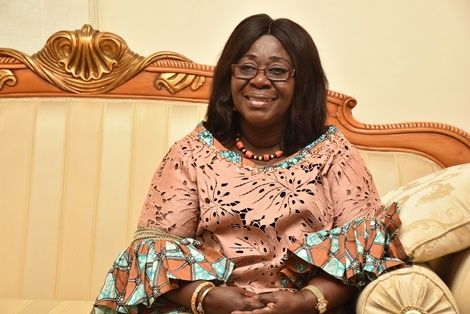Ghana’s current chief of staff is Madam Akosua Frema Osei-Opare, who many people have described as a ‘true mother’. She gives out love to many and shows motherly love to everyone that comes her way. She is a politician and an economist.
She is from Wiamoase in the Ashanti Region, which happens to be my hometown too. I have not had the opportunity to chat with her face to face. I am sure I would have discussed this if I ever had the opportunity. That is why I want to make this an open letter.
Mummy, I got a little scared when a motor accident victim approached me and told me he was involved in a motor accident with one of the Ministries’ vehicles. I am not going into the facts of the case, but this brought my mind to something I would like to share with you for a possible solution.
The statistics for motor accidents are scary, and that is why road accidents are a national issue in Ghana. To protect accident victims, many countries acted by making third-party liability insurance compulsory or having security. In Ghana, the Motor third party Act is the Motor Vehicles (Third Party Insurance) Act, 1958 (No. 42). The following are a few of the things you need to know about your motor third party insurance Act 1958;
“Subject to this Act, a person shall not use or cause or permit any other person to use a motor vehicle unless there is in force in relation to the user of that motor vehicle by that person or the other person, a policy of insurance or security (that is to deposit and keep the deposit with the Accountant-General the sum of two hundred thousand cedis) in respect of third party risks which complies with this Act.”
The Motor Vehicles (Third Party Insurance) Act, 1958 (No. 42) that makes vehicles have a minimum of third party motor insurance or security excludes government or state vehicles, and I quote the first exemption – “the user of a motor vehicle owned by or exclusively employed in the service of the Government while the motor vehicle is being used for the purposes of the Government”. I am sure the legal people could help us interpret the phrase “for the purpose of the government”. Does this include when the vehicle is being used on private assignments by individuals working for government agencies?
What would happen if a government vehicle causes injury, death or property damage to other people (third parties). Mummy, this is why I would be very grateful if you could help answer these questions below for public knowledge:
- Where will motor accident victims receive compensation?
- What are the processes and procedures for making the claim?
- What benefit or compensation do I stand to get when I am involved in an accident with a government vehicle?
- Who or which institution is responsible for handling all the third-party claims associated with government vehicles?
- Which body can you complain to when you do not receive fair compensation?
- What are the timelines for the claims processes?
- What is the limitation period to officially report a claim with a government vehicle as a victim or a dependant of the victim for compensation?
- What benefits go to the dependants of a motor accident victim from a government vehicle in case of demise – and any others that may come to mind?
The motor third party insurance cover will pay on behalf of the insured or the driver, in respect of a legal liability to third parties resulting from an accident caused by his/her vehicle. In simple terms, when the third party is any other person except the owner or the driver of the vehicle the insurer will indemnify:
- The owner or any other person driving, using, or in charge of the vehicle with the consent of the owner, or any authorised passenger getting in, on, or out of the vehicle for:
- death of or bodily injury to any person, and/or
- damage to property belonging to someone other than the insured
- death of or bodily injury to a member of the insured’s household or any other occupants
- the policy also pays compensation to the driver for bodily injury or death
Even though the Act exempts government from taking this insurance, I believe it would save us a lot of financial burdens and also provide us with enough security, protection and assurance if we have these vehicles insured with at least the minimum cover – which is the motor third party risk. Imagine how much government could pay as compensation to each motor accident victim compared to the premium for motor third party cover.
Again, I also believe government as a word is too big to cover a lot of institutions. Possibly, the exclusion could be limited to cover only the Presidency and a few other executives.
Furthermore, allowing most government institutions to insure can also grow the insurance sector. Government has more resources than any other instutution. This would increase insurance penetration and coverage, and it is also another form of injecting capital into the economy.
In Georgia, there are significant legal and procedural differences which arise when one of the parties involved in a motor vehicle accident is a government vehicle. I believe we can learn from them.
Motor Third party insurance is critical when there is an accident because it provides compensation for injured third-party victims, and also compensation for dependents of people who die through motor accidents or crashes. This is the main reason why occupants of vehicles should always check the validity of a vehicle’s insurance before they board. It has now become easier to do this by just dialling *920*57# and inputting the vehicle number into a system on any phone or network at no cost to you.
The writer is a Chartered Insurance Practitioner and an Associate of the Chartered Insurance Institute of United Kingdom and also Ghana (ACII-UK, ACIIG),
References
Motor Third Party Policy Document
Motor Third Party Insurance Act 1958










